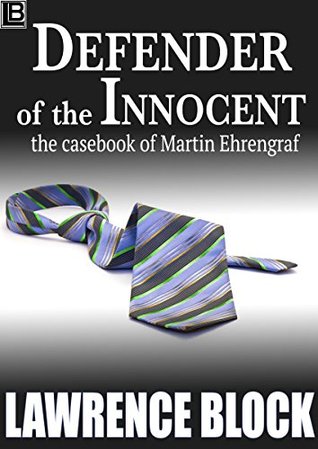Overview:Martin H. Ehrengraf is an attorney who almost never sets foot in a courtroom. Instead, clients pay one dollar to retain his services. Should he win, the client pays a steep fee, and it doesn't matter how the client gets cleared: They have to pay. Or they pay in some other way. And Ehrengraf never loses a case. Because his clients are always innocent.
Martin H. Ehrengraf is a well groomed with an eye for tasteful clothing. He has one celebratory tie he wears when certain of victory, and he comes calling for his fee. Sometimes he clients don't want to pay the full amount, which they may later regret.
Often, clients come in knowing they committed a crime, or they had some blackout, which prevents their knowing for certain (but the evidence is certainly stacked against them as if they had done it), and sometimes Ehrengraf himself arranged the case and positioned himself when they do get in trouble--a different kind of ambulance chasing.
Commentary:
 Ehrengraf's methods are unorthodox, to say the least. Highly moral readers who don't read mysteries already may be horrified. Ehrengraf's ethics are all his own, and there may be few who would agree with him.
Ehrengraf's methods are unorthodox, to say the least. Highly moral readers who don't read mysteries already may be horrified. Ehrengraf's ethics are all his own, and there may be few who would agree with him.His personality is etched more for his lack of "proper" response than the upkeep of clothes or his desk. He is sharp and unconventional only in that he is the classic detective deducing conventionally but applying this in an unconventional manner.
That's where the series gets interesting. Ehrengraf is an interesting if not dynamic character, but it is his character that pushes up against our sense of justice. In so doing, he becomes a critique of the American criminal justice system and of reading mysteries in themselves. Anyone can be named the true criminal, whether guilty or not. The whole system of reading mysteries to see justice served is flawed in that it is a fabrication. So, by analogy, the reader is forced to question whether justice is ever served.
Now Block shows no hint in his commentary that this may be the case. In fact, he states a few times that Ehrengraf is the only lawyer who works in this manner--evidence can be manufactured and/or stacked in different ways--but it does bring the issue to mind by his existence. This isn't to say this is necessarily my view, but that reading the book highlights the idea: What is innocence but a construct? Who is truly innocent when they exit the courtroom?


No comments:
Post a Comment